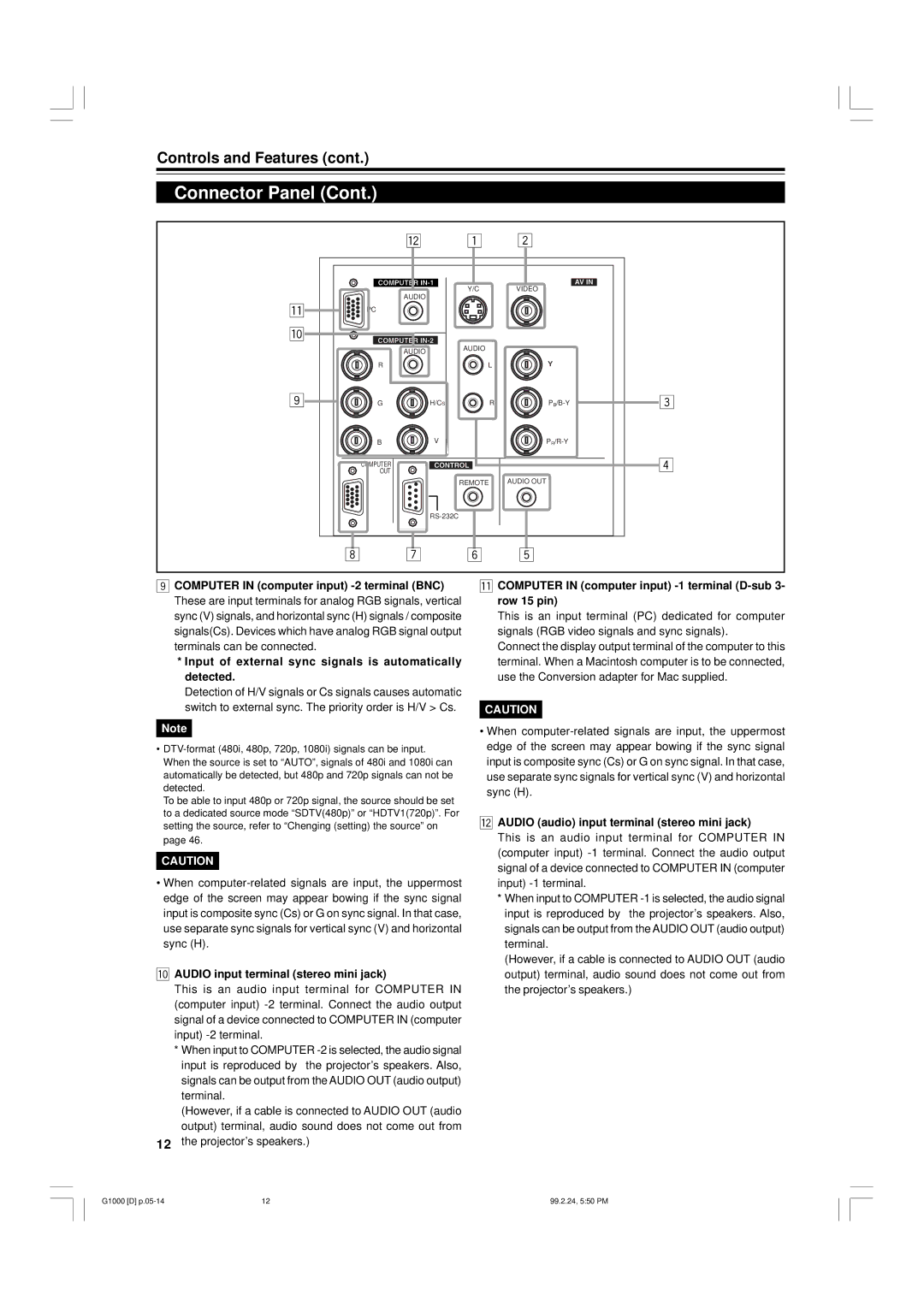
Controls and Features (cont.)
Connector Panel (Cont.)
|
| w | 1 | 2 |
|
|
| AUDIO | Y/C | VIDEO |
|
|
|
|
|
| |
q | PC |
|
|
|
|
|
|
|
|
| |
p |
|
|
|
|
|
|
| AUDIO | AUDIO |
|
|
|
|
|
|
| |
| R |
| L | Y |
|
9 | G | H/CS | R | 3 | |
| B | V |
|
| |
| COMPUTER |
|
|
| 4 |
| OUT |
|
|
|
|
|
|
| REMOTE | AUDIO OUT |
|
|
|
|
|
| |
| 8 | 7 | 6 | 5 |
|
9 COMPUTER IN (computer input) | q COMPUTER IN (computer input) | ||||
These are input terminals for analog RGB signals, vertical sync (V) signals, and horizontal sync (H) signals / composite signals(Cs). Devices which have analog RGB signal output terminals can be connected.
*Input of external sync signals is automatically detected.
Detection of H/V signals or Cs signals causes automatic switch to external sync. The priority order is H/V > Cs.
Note
•
To be able to input 480p or 720p signal, the source should be set to a dedicated source mode “SDTV(480p)” or “HDTV1(720p)”. For setting the source, refer to “Chenging (setting) the source” on page 46.
CAUTION
•When
pAUDIO input terminal (stereo mini jack)
This is an audio input terminal for COMPUTER IN (computer input)
*When input to COMPUTER
(However, if a cable is connected to AUDIO OUT (audio
output) terminal, audio sound does not come out from
12the projector’s speakers.)
row 15 pin)
This is an input terminal (PC) dedicated for computer signals (RGB video signals and sync signals).
Connect the display output terminal of the computer to this terminal. When a Macintosh computer is to be connected, use the Conversion adapter for Mac supplied.
CAUTION
•When
wAUDIO (audio) input terminal (stereo mini jack)
This is an audio input terminal for COMPUTER IN (computer input)
*When input to COMPUTER
(However, if a cable is connected to AUDIO OUT (audio output) terminal, audio sound does not come out from the projector’s speakers.)
G1000 [D] | 12 | 99.2.24, 5:50 PM |
